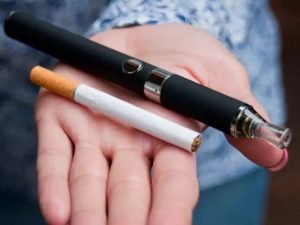Vaping in 2025: Why Queer India Needs to Rethink the Cloud
Vaping isn’t just a trend it’s a health risk. What was once marketed as a “safer” alternative to smoking is now linked to serious lung diseases, including chronic obstructive pulmonary disease (COPD) and vaping associated lung injury (EVALI). For queer communities already navigating health disparities, the stakes are even higher.
Queer India and the Vaping Paradox
In 2025, vaping remains popular in social settings from pride events in Delhi to café meetups in Bengaluru. Despite the 2019 ban on e-cigarettes in India, usage persists, especially among youth and urban professionals. This paradox calls for urgent attention, as the dangers associated with vaping are not hypothetical but have already caused significant health crises globally.
The Science: Vaping and Lung Health
Recent studies have shed light on the risks associated with vaping:
- COPD Risk: A 2025 metanalysis found that current e-cigarette users have 47.3% higher odds of developing COPD compared to nonusers. Former users also face elevated risks, with odds ratios of 1.84 and 1.79, respectively.
- EVALI Concerns: Research indicates that e-cigarettes can suppress the immune system and increase stress related proteins in the lungs, leading to conditions like EVALI.
- Chemical Exposure: Vaping exposes users to harmful chemicals such as nicotine, acrolein, heavy metals, and vitamin E acetate, which can lead to serious respiratory conditions including COPD, asthma, chronic bronchitis, and emphysema.
Intersectional Impact on Queer Communities
Health risks from vaping intersect with larger systemic issues affecting LGBTQ+ communities:
- Limited Access to Queer Friendly Healthcare: Queer individuals often face discomfort in traditional clinics, leading to delayed preventive care or treatment.
- Social Norms and Stress: Parties, pride events, and peer circles sometimes normalize vaping as a social habit. Stress and discrimination can make queer individuals more susceptible to substance use.
- Intersectional Vulnerabilities: Trans and nonbinary people may face compounded health risks due to hormone therapy, respiratory conditions, or smoking habits.
“As someone navigating chronic asthma and social spaces where vaping is common, I realized late that what felt ‘cool’ was actually damaging my lungs,” says Arjun, a queer rights activist in Chennai.
Practical Steps for Safer Choices
While the ban has limited the availability of e-cigarettes in India, community awareness is key. Here’s how queer India can protect lung health:
- Educate Yourself and Peers: Share factual information about EVALI, vaping, and tobacco risks.
- Seek Safe Spaces for Support: Look for Queer friendly clinics or online resources for guidance on smoking cessation.
- Mind Dual Usage: Avoid combining vaping with traditional tobacco. The risk multiplies.
- Alternative Coping Strategies: Explore stress relief through meditation, fitness, or creative expression instead of nicotine products.
- Advocate for Health Inclusivity: Join initiatives pushing for better LGBTQ+ health coverage and research in India.
Looking Ahead
E-cigarettes are not just a personal ChoiceTel reflect larger societal patterns around marketing, accessibility, and health education. For queer India, understanding these risks is part of building safe spaces that value body autonomy, informed choice, and long-term wellbeing.
Being visible, empowered, and healthy means making decisions that honour your body as much as your identity. In 2025, vaping may still be trendy, but knowledge is the ultimate resistance.





